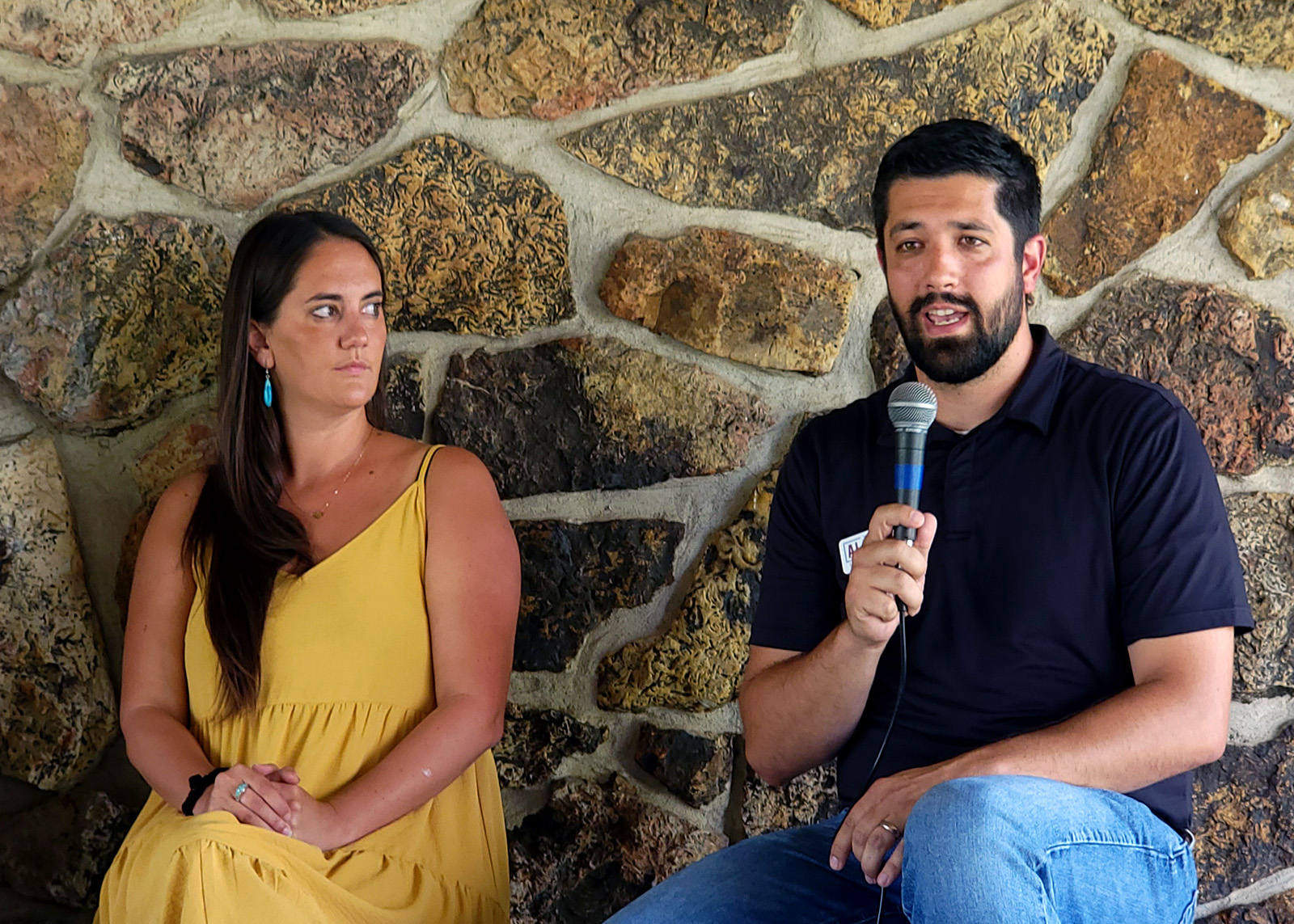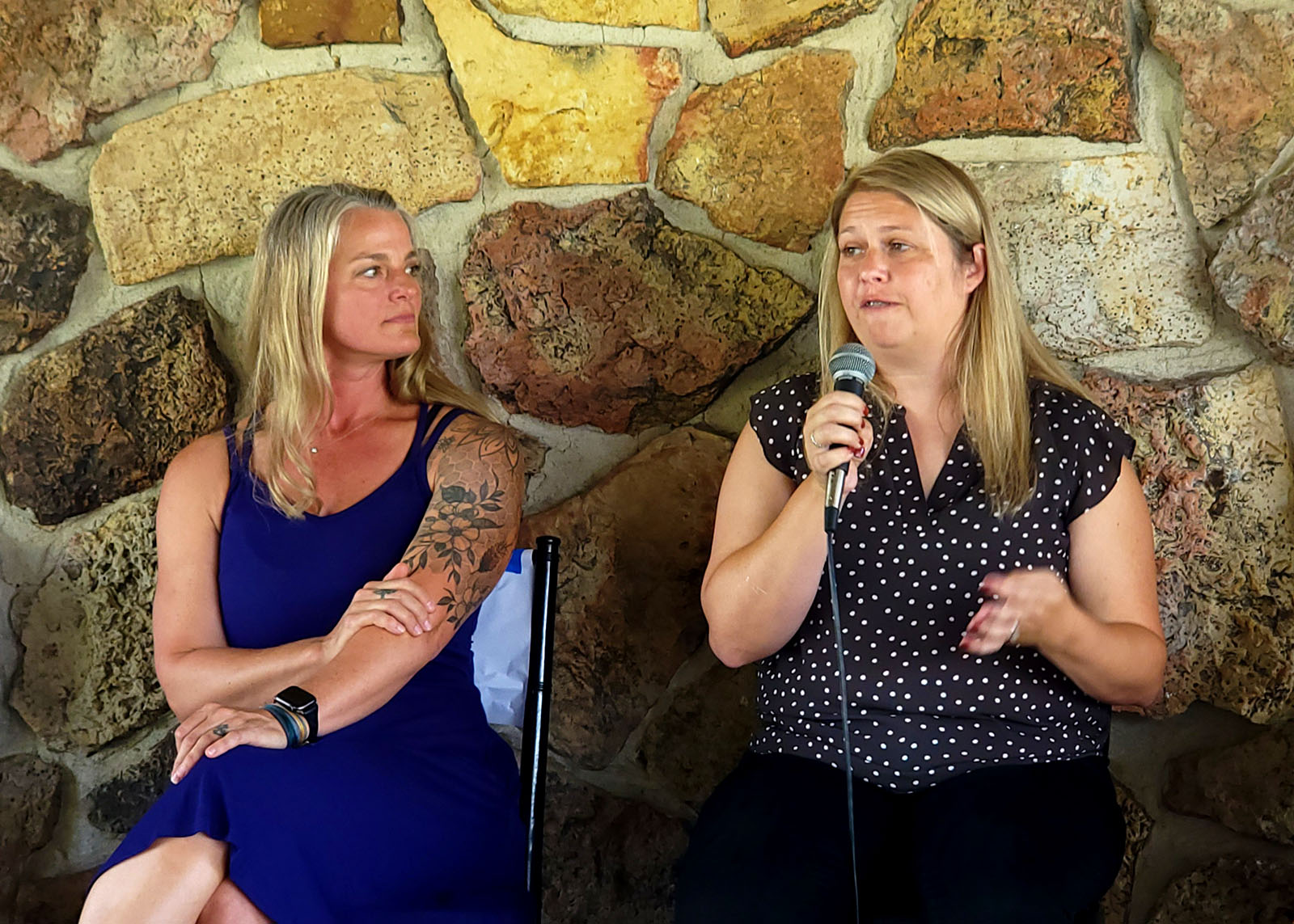Correction: An earlier version of this story incorrectly described Stephanos Freeman's professional history. The story was updated Oct. 25, 2022.
Rep. Crystal Quade, first elected in 2016, is running her fourth campaign in House District 132, but Republicans, and Quade’s challenger Stephanos Freeman, have similar goals as the Democrats of flipping some seats.
The 132nd has been a lone Democratic outpost in Southwest Missouri, since Charlie Norr toppled incumbent Republican Melissa Leach in 2012. In 2020, Betsy Fogle won District 135 and joined Quade and the Democrats in Jefferson City.
But will Quade return next year?
The candidate field has been in flux after Quade filed a lawsuit against independent candidate Larry Flenoid II. Flenoid’s name was later removed from the ballot, on grounds that he failed to gather enough valid signatures to qualify.
Freeman, the Republican candidate, certainly faces a tough challenge in defeating a three-term incumbent. But with the current voter concerns and a drastically reshaped District 132, even Lanae Gillespie, chairwoman of the Greene County Democrats, admits Freeman poses a challenge:
“I think it's going to be a little more difficult for Crystal than it's been before,” she said.
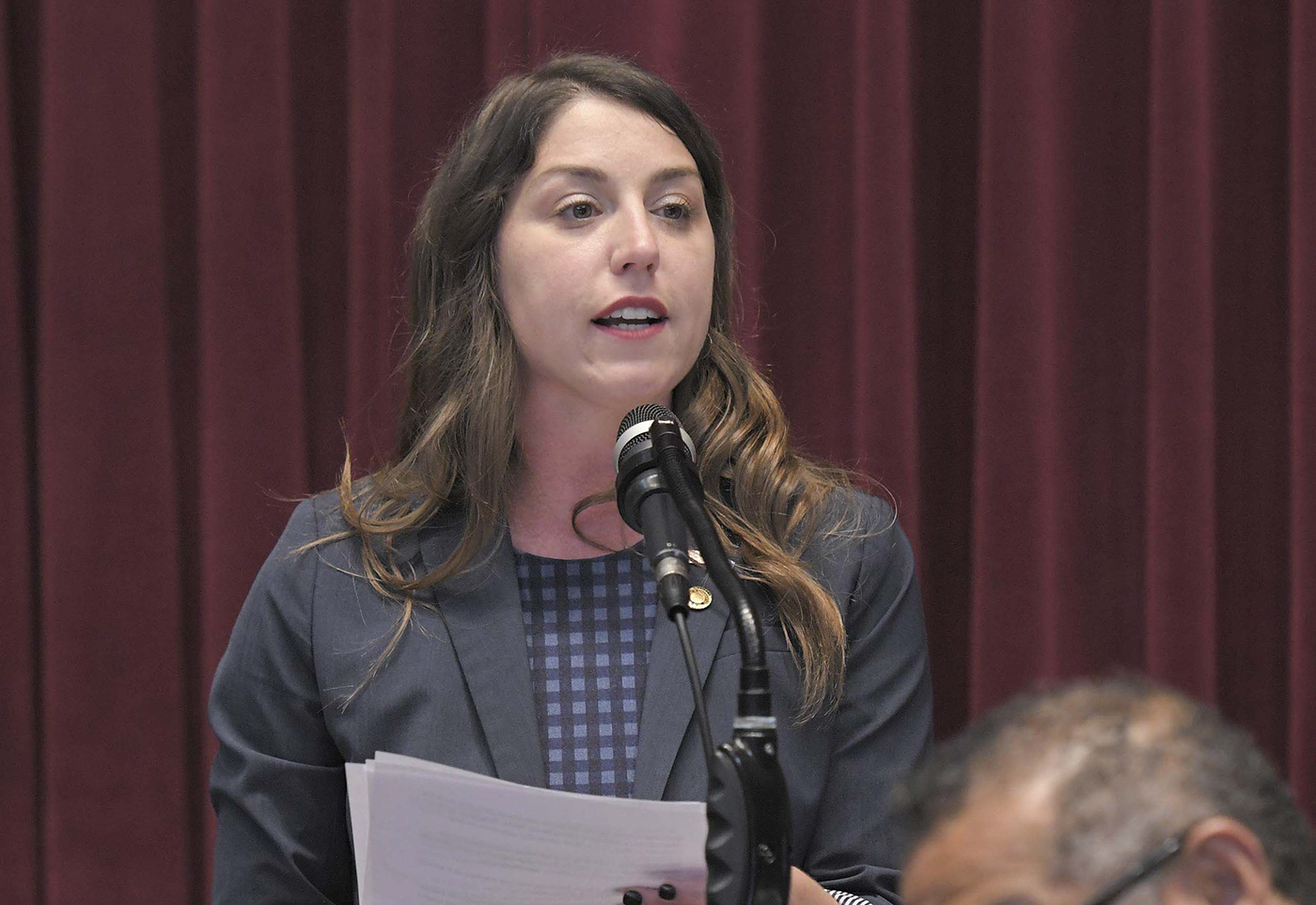
A well known figure in legislature, Quade climbed the political ladder
Quade was the first in her immediate family to graduate high school. She was raised, with her sibling, by an overworked mother and stepfather, who himself worked his way up the “factory ladder.”
Quade, a graduate of Logan-Rogersville High School, attended Missouri State University, where she completed a bachelor’s degree in social work. She has since worked for her predecessor Norr as well as former U.S. .Sen. Claire McCaskill’s offices, and as the Director of Chapter Services for Springfield-based nonprofit Care to Learn.
Since her first internship in Jefferson City, Quade knew she wanted to become involved in politics. “I knew that I would one day run for office,” she says on her campaign website. “I learned very quickly that not enough legislators understood the realities of poverty. … I ran to bring my unique perspectives to Jefferson City.”
STORY CONTINUES BELOW
While working tough jobs, Freeman had his mind on larger issues
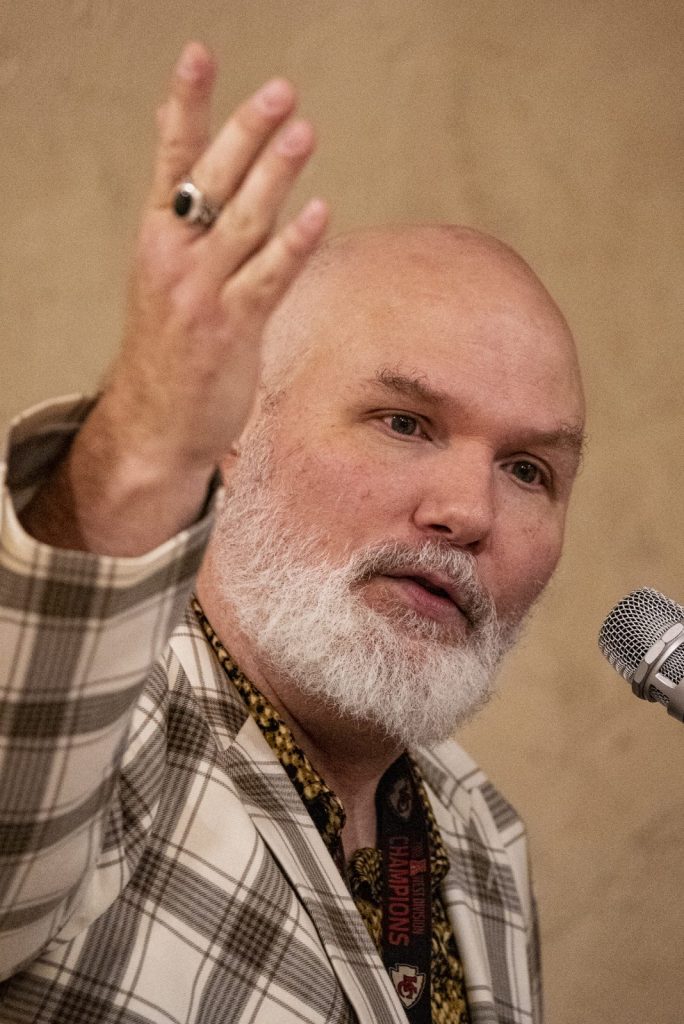
Freeman, a Willard High School graduate, obtained a degree in sociology from MSU, with a minor in anthropology.
Much of his professional career has been spent in both factories and the public school system, as a substitute teacher specializing in social studies. He also has worked for Burrell Behavioral Health and mental disabilities services company Alternative Opportunities. Currently, Freeman is just focusing on the campaign.
“I worked a lot of jobs no one wanted to have,” Freeman said. “Working in a warehouse where I was loading trucks with a 105-degree heat index outside … and of course later on, I got in the freezer. … Not the most intellectual work, which, quite frankly, I was always thinking about larger issues.”
Freeman’s campaign website shares his ideas of how to “protect the independence of the individual, community and the state of Missouri.”
“Unfortunately, too many people are being led astray from common sense,” Freeman says on his campaign website. “Our common language now focuses on the margins and theoretical meaning. Words exist to communicate but are now used for influencing rather than getting a message across.”

What's the proper state role in addressing opioid epidemic?
The opioid epidemic is something that both Quade and Freeman have witnessed firsthand. Quade, who serves on the board for Better Life and Recovery, lost a sibling to addiction and Freeman has personal and work experiences in addiction treatment facilities.
“[The opioid epidemic] is a personal issue that I am deeply passionate about,” Quade said. “There is so much that we could be doing from the state side to be helping with this.”
Quade praised the progress the state has already made, from programs available from the Department of Mental Health, to Missouri’s long-awaited establishment of a Prescription Drug Monitoring Program and various “quick policy” harm-reduction tactics, including needle exchange programs.
However, she sees the situation as one step forward and two steps back, as many of these programs lack resources and a lot of the strategies the state is employing are worsening the epidemic, notably around housing. She highlighted the recent House Bill 1606, which effectively criminalizes sleeping on state-owned lands.
“The way that our housing works for folks who are in these programs, you have to have actually used within a certain time period to get help for housing,” Quade said. “This is another place where we’re kind of disincentivizing folks from getting better, because once you’re clean for so long, then you don’t have access to those services any more and it’s hard to find a place to live.”
Freeman pointed out the link the opioid epidemic has to marijuana, and sees the pros of decriminalizing marijuana, but “hates” the recreational marijuana ballot initiative that will be voted on Nov. 8.
“A lot of people who are now addicted to opioids were getting prescription drugs and they were just kind of led to the other because they decided to crack down on opioids,” Freeman said. “They’re already addicted to opioids by the time they get cut off so now they’re doing the illegal drugs.”
Freeman thinks that decriminalizing marijuana could potentially help provide a legally safer form of handling pain than illegally obtained opioids.
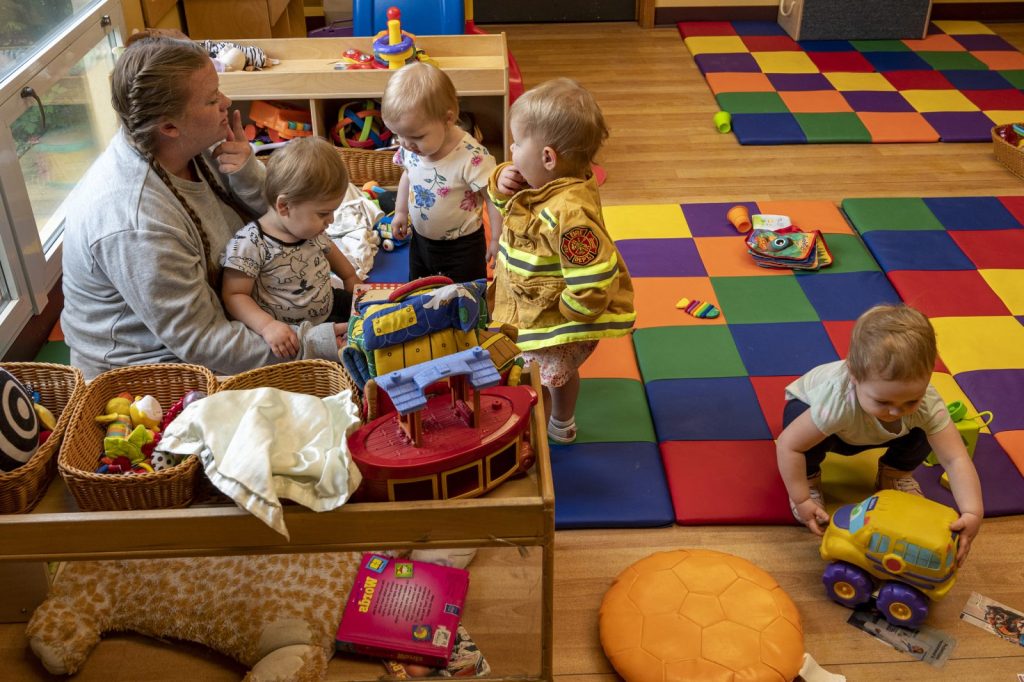
Differing ideas for tackling child care crisis
When it comes to addressing some of the issues the state is facing with child care right now, Freeman thinks the government should take a step back. He thinks that child care costs have risen because of government regulation on the child care industry.
Freeman spoke about his cousin’s struggles with all the regulations that make it difficult to open a home day care and the disconnect it is causing between parents and their children.
“People are separated from their families, they’re largely separated from their churches,” Freeman said, referencing what he views as a negative impact putting a limit on the number of children allowed at in-home day care facilities before burdening them with regulations.
“Then they have regulations, so they can’t go to their neighbors. So, what you end up having is a disconnected society.”
Quade said that the child care crisis is the No. 1 issue she hears from constituents and employers, especially when it comes to finding quality child care and affordable access to it. While she acknowledged that child care subsidies and grants for businesses are effective routes to take, Quade would like to see a more upstream approach made to tackle the issue.
“I feel like there are a lot of pieces of law that currently exist that keep folks in the system,” Quade said. “We can talk about the child care subsidy, but this goes across the board to everything where we have hard lines where state aid gets cut off and essentially, you can only make so much money before you hit a wall and everything is taken from you in terms of aid. What that does is it creates a system where folks aren’t taking pay raises, they’re not taking additional hours at work because you take a 10-cent pay raise, and you lose $400 in child care (subsidies).”

Debating abortion restrictions
In regards to the trigger ban that went into effect shortly after the overturning of Roe v. Wade, which effectively bans most abortions in Missouri, without an exception for rape or incest, Quade did not try and paint a rosy picture for pro-choice proponents.
“With the reality of the numbers that we have in Jefferson City, we can’t go in and fight for a complete undoing of that,” Quade said.
As discussions are being held by her Republican colleagues around banning some forms of birth control for Medicaid patients, the morning after pill and ectopic pregnancies, Quade and her allies will be kept busy on the defensive without much hope, in the legislature, of reversing the existing restrictions.
However, she has noted legislators on the other side of the aisle are beginning to see the negative impact of their “extreme legislation,” as women experiencing miscarriages are being sent home without medical treatment.
“If I am reelected, one of the angles that we’re going to try and go at is to get rid of the nuance in the bill,” Quade said. “Right now, there’s a lot of confusion around when doctors can step in, there’s a lot of confusion around what is covered, what isn’t. We want to go in and really make it clear, so that our doctors are not put in a position where they don’t treat someone who needs to be treated.”
While Freeman believes there are more effective ways to reduce abortions, he thinks pro-choice advocates have exaggerated abortion restrictions in the past and are responsible for the backlash that is happening.
“They’re not forcing anyone to have sex,” Freeman said. “We focus on what the exceptions are, rather than what the rule is.”
Freeman referenced laws that have been effective in reducing abortions, without outright banning them, such as a 2019 Louisiana abortion law referred to as the “heartbeat bill,” which was eventually struck down in the Supreme Court in 2020.
“The activists were yelling how that was going to take women back 50 years, and all they were doing was giving women information and making sure that [doctors] who didn’t want nothing to do with it didn’t have to participate,” Freeman said.
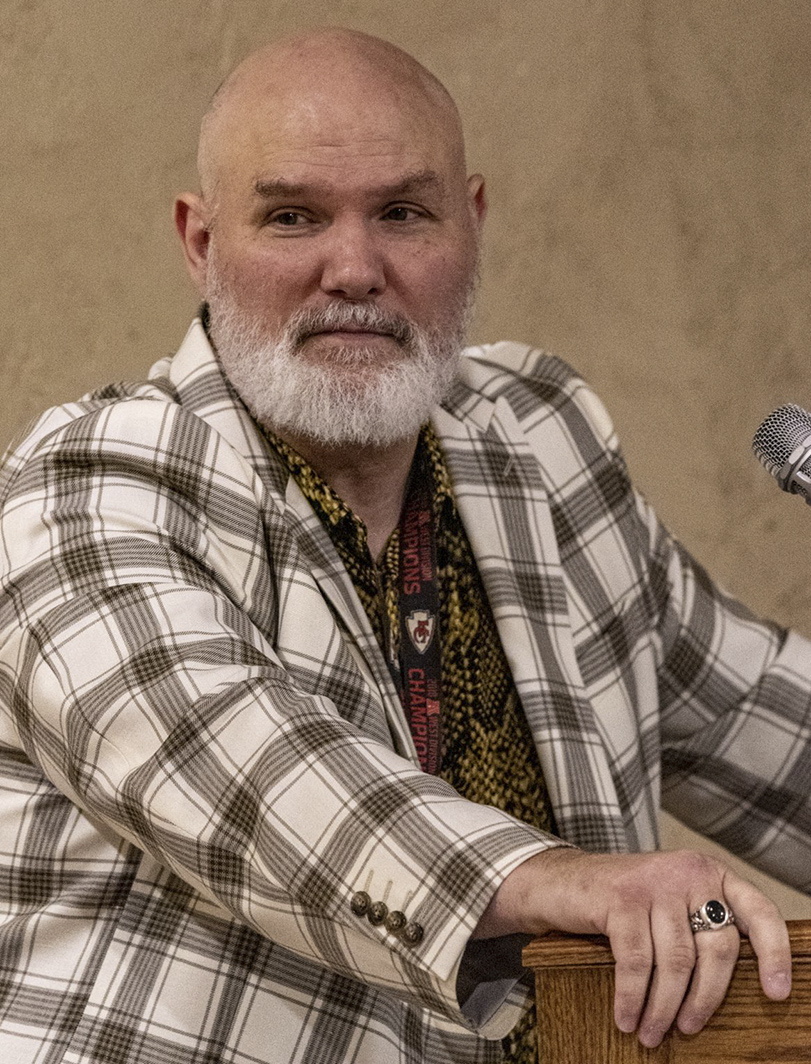
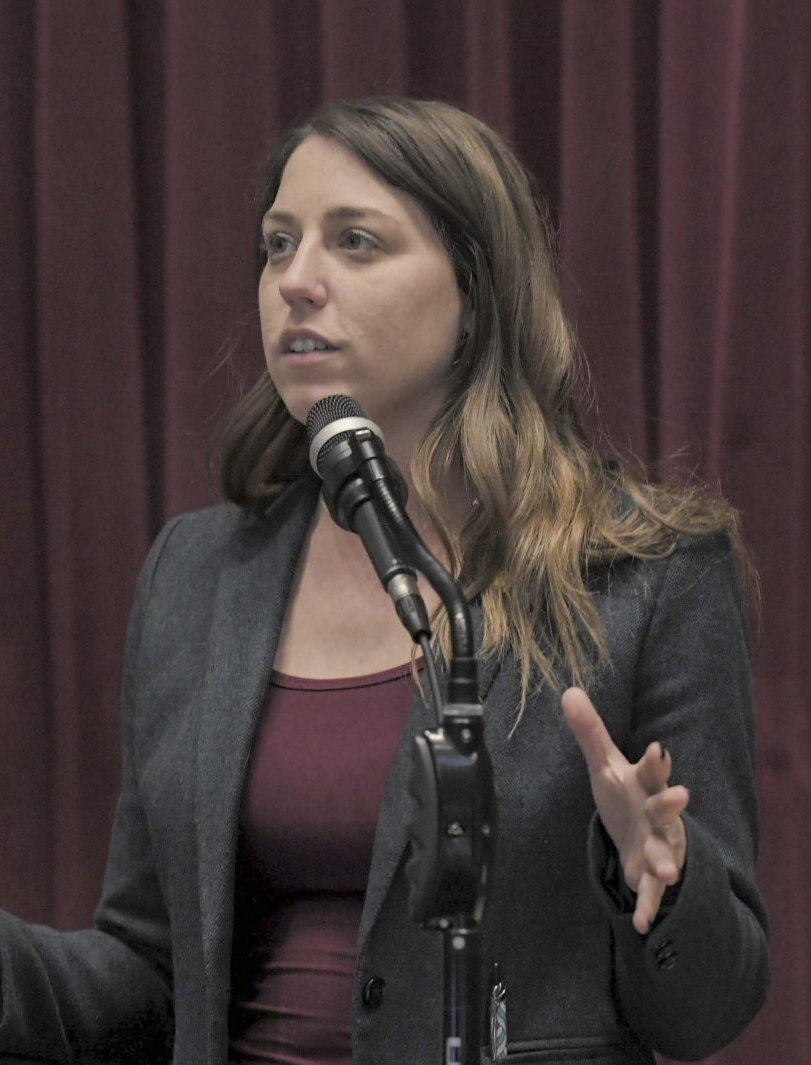
Quade leads fundraising
Quade’s campaign is entering the stretch run of the campaign with more than $111,000 on hand, with significant contributions from former O’Reilly Auto Parts executive Charlie O’Reilly and the John Deere PAC. Freeman, on the other hand, has north of $4,000 in campaign finances, with a large chunk of that from the Greene County Republican Central Committee.
These reports, filed on Oct. 16 and 17, respectively, may not reflect spending by independent outside organizations on behalf of either campaign.
(Editor’s note: Daily Citizen Board Chairman Thomas Carlson and his wife Chandler, as well as board members Jim Anderson and M. Suzanne Shaw, have made donations to Quade’s campaign. Board members play no role in news coverage decisions.)
While he does not have the same financing as his opponent, Freeman sees his lack of organizational support as an advantage.
“I’m not an organizational man,” Freeman said. “I would kind of consider my strength is, I don’t have a whole lot of organizations saying, ‘Hey, this is the person,’ because when you get when you’re an organizational person, you actually do not change nothing.”
Freeman said that people with a lot of support from organizations “have blinders and you also have the special interest.”
As the 132nd becomes more competitive, Quade’s game plan is the same as it’s always been: knock on doors in the district, make phone calls and listen to how constituents want her to vote on the issues.
“There are certain issues, value sets of mine, that are core to who I am as an individual,” Quade said. “I’ve always been very open and honest about those to my constituency … That said, because we represent a part of the state that is divided, I do believe it’s my job as a representative to go into the community, to talk to folks … and I listen, because that is our job as elected officials to listen.”
Where and when to vote, and what you need to bring (Click to expand story)
When and where: The general election will take place on Nov. 8. Polls open at 6 a.m. and close at 7 p.m. You can identify your polling location here. Information on absentee voting in Greene County can be found here.
Finding your district: Information about what state House and Senate district you might live in can be found here.
What you need: This is the first election that Missouri’s new photo ID law will be in effect. The Secretary of State’s website provides information about what forms of ID will be acceptable.



